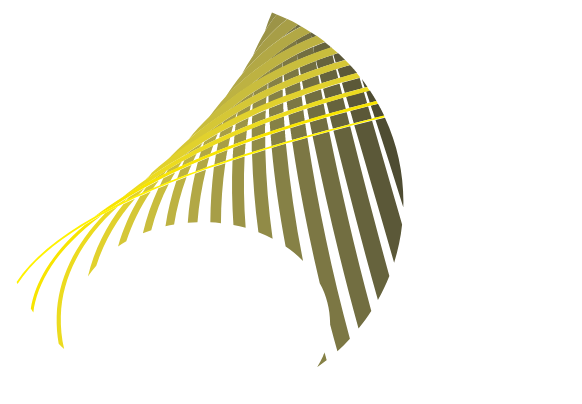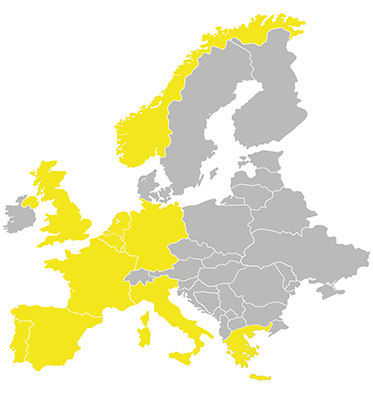By Dr Claire Flanagan, Senior Innovation Consultant
Horizon Europe – the EU’s most ambitious research and innovation programme to date
Launched in early 2021, Horizon Europe is the EU’s key funding programme for research and innovation with a budget of €95.5 billion (2021-2027). It tackles climate change, helps to achieve the UN’s Sustainable Development Goals and boosts the EU’s competitiveness and growth. Horizon Europe is the follow-on framework to Horizon 2020 and is the most ambitious EU research and innovation programme to date.
The status of UK’s participation in Horizon Europe
Pre-Brexit, UK-based organisations were able to participate fully as a member state in European framework programmes and were incredibly successful. Although it is anticipated that the UK will ‘associate’ to Horizon Europe, enabling organisations to access funding as a full member state, negotiations are still in progress with ongoing delays around the Northern Ireland protocol. Until the UK formally ‘associates’ to Horizon Europe, UK-based organisations must also seek guarantee funding though UKRI, as a short-term measure if successful in applying for Horizon Europe.
For some, this extra bureaucratic step along with alarming media reports of successful UK applicants losing coordinator status or having to move to Europe in order to accept their awards (e.g. under ERC), has understandably led to a reluctance to apply, especially considering the considerable efforts involved in preparing an application. Fortunately, other support is available…
Alternative funding options to support UK SMEs with international R&D collaborations
If you are a UK-based SME who would like to collaborate with international partners, there are some alternative grant funding options worth exploring. These include:
1. Eureka Eurostars – EU partnership for Innovative SMEs
Eurostars supports innovative SMEs and project partners by funding international collaborative market-oriented R&D innovation projects. The scheme is open to all technology areas and market fields, but projects must have a civilian (not military) purpose. Eurostars typically supports projects with proven feasibility aimed at pre-commercial development and demonstration and is therefore ideal follow-on funding or for companies looking to scale to an EU wide market.
Projects must be led by an R&D-performing SME and include at least two partners independent from each other and established in at least two different Eurostars countries. Eureka Eurostars member countries include Austria, Belgium, Bulgaria, Canada, Croatia, Cyprus, Czech Republic, Denmark, Estonia, Finland, France, Germany, Greece, Hungary, Iceland, Ireland, Israel, Italy, Latvia, Lithuania, Luxembourg, Malta, the Netherlands, Norway, Poland, Portugal, Romania, Singapore, Slovakia, Slovenia, South Africa, South Korea, Spain, Sweden, Switzerland, Türkiye and the UK.
Each partner is supported by their respective national funding body and according to their rules. UK participants are supported by Innovate UK and can receive a grant of up to 360,000 euros or 60% of total eligible project costs, whichever is the least.
UK-based research organisations must fund their own participation or use funding from other sources.
Since applicants are directly supported by their respective national funding bodies, UK participation is therefore not impacted by the ongoing association status negotiations.
The scheme is open for funding applications on a continuous basis, and there are typically 2 calls per year (Spring and Autumn closing dates). The programme has very strong success rates: ~29% of applications receive funding.
Next deadline: 14th September 2023
Find out more about the Eureka Eurostars scheme.
2. Bilateral Collaborative R&D Funding Support
In recent years, we have seen numerous bilateral funding competitions aimed at supporting collaborations between UK-based businesses and organisations located in countries such as Australia, Canada, India, Israel, Singapore, South Korea, Taiwan, and Vietnam.
As with Eureka Eurosrtars, each partner organisation is supported by their respective national funding body (UKRI Innovate UK for UK based SMEs), presenting a lower risk option to focus grant funding acquisition efforts.
At the time of writing, there are several bilateral funding opportunities open for applications:
- UK-Germany: Open scope for game-changing and commercially viable R&D in any technology/sector – deadline 07 June 2023
- UK-South Korea: Scope includes, advanced manufacturing and materials; artificial intelligence; future mobility (including battery technologies); energy storage systems; hydrogen – deadline 07 June 2023
- UK-Taiwan: Open scope with applications welcomed in: smart technology e.g. next generation communication and semiconductor technology; green energy technologies e.g. electric vehicles, hydrogen transportation and renewable energy; smart manufacturing; biotechnology e.g. medical materials; service innovation e.g. the Internet of Things, Big Data, Artificial Intelligence, 5G and 6G – deadline 19 July 2023
- UK-Switzerland: Open scope for game-changing and commercially viable R&D in any technology/sector – deadline 26 July 2023
- UK-South Korea Digital Health CR&D – deadline 02 August 2023
- UK-India: Scope includes sustainable materials and manufacturing; Power electronics, machines and drives – deadline 06 September 2023
- UK-Israel: Open scope for game-changing and commercially viable R&D in any technology/sector – deadline 13 September 2023
You can find out more about current and upcoming bilateral funding competitions via our UK R&D Grants funding page.
Beyond Horizon Europe – Brexit Opportunities & Outlook
The recent Windsor Framework is a step in the right direction for association and ‘good news for researchers in the EU and UK’ (EC Commissioner Ursula von der Leyen, February 2023). As a back-up plan, the UK government also announced Plan P, a £14.6Bn Pioneer programme as a long-term alternative in the unfortunate event that association talks fail and the UK does not end up being an associate partner to Horizon Europe.
Additionally, as a result of the ongoing post-Brexit trade deals, we expect there will be many more bilateral funding opportunities which will enable and facilitate international collaborations between UK-based businesses and partners from across Europe and globally.
Finally, in the UK, we are very fortunate to have a very healthy R&D funding landscape with numerous opportunities through our national funding agency, Innovate UK, with even more funding opportunities expected in the coming years due to the uplift in budget allocation announced in June 2022, equivalent to a ~50% increase over the subsequent 3 years.
PNO is Europe’s leading innovation and funding consultancy – how the UK team can support you
With offices in Belgium, France, Germany, Greece, Italy, the Netherlands, Portugal, Spain, as well as the UK, the PNO group has extensive collective European expertise and experience, as well as a broad network of 2,000 organisations and 4,000 research clients from different sectors, domains, and countries, including academic organisations, research institutes, SMEs and large industries.
PNO UK with the backing of our European colleagues, are therefore well placed to support UK-based organisations in exploring funding options to establish and support international R&D collaborations.
We continue to closely monitor the UK-EU negotiations and the implications for UK participation in EU grant funding opportunities. If you would like to explore current opportunities for international R&D collaborations, we welcome the opportunity to discuss potential project ideas with you, so please do get in touch!
You can contact us on 0161 488 3488 or email info.UK@pnoconsultants.com or submit an online enquiry on our contact page.
Background information
How to be successful in Horizon Europe (PNO)
Horizon Europe: help for UK applicants (UKRI)
Q&A on the UK’s participation in Horizon Europe (europa.ec)
UKRO UK Participation in EU Programmes factsheet (UKRO)
UKRI budget confirmation bodes well for innovative organisations (PNO)




